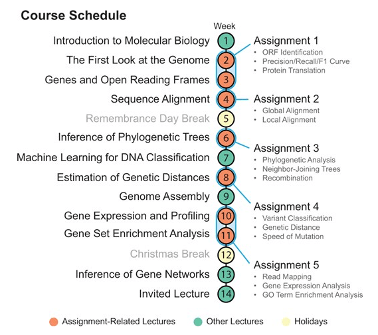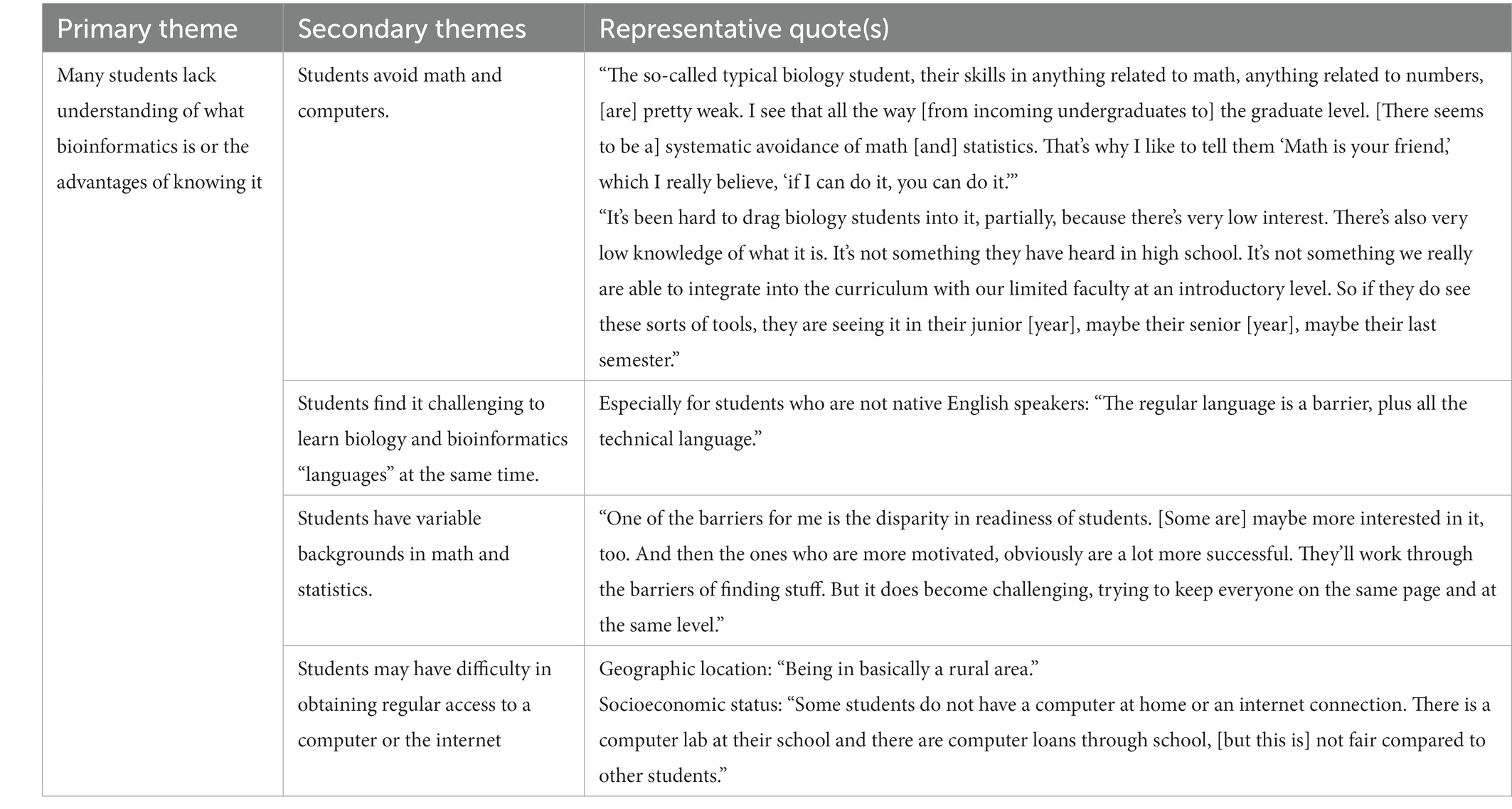The Buzz on Bioinformatics Tutor
The Buzz on Bioinformatics Tutor
Blog Article
5 Easy Facts About Bioinformatics Tutor Explained
Table of Contents9 Easy Facts About Bioinformatics Tutor DescribedThe Of Bioinformatics TutorThe Best Guide To Bioinformatics TutorFacts About Bioinformatics Tutor RevealedSee This Report about Bioinformatics Tutor
Of the total individuals associated with the training, 80% were trainees from public college establishments, while the remaining 20% originated from personal establishments. To get approved for a certification of involvement, trainees were needed to go to at least 90% of the total training hours. As an outcome of this demand, a remarkable 95% of the individuals effectively obtained their certificates, having not just satisfied the minimum participation standards however additionally finished all assigned tasks throughout the training.
Throughout the height of the COVID-19 pandemic, particularly between June and August 2020, the project team was tasked with arranging specialized training in bioinformatics. This training was especially aimed at pupils from the research study team Nucleus for Study in Applied Computing at the Federal University of Pará (UFRA) The adaptation to remote learning platforms as a result of the pandemic created an opportunity to check out brand-new teaching methods and digital devices that enhanced both reach and efficiency.
This program was designed to give an easily accessible yet extensive introduction of Artificial Knowledge techniques, specifically as applied in bioinformatics (Bioinformatics Tutor). This virtual style made it possible for involvement from students throughout Brazil, many of whom might not have had the opportunity to participate in in-person sessions.
The Basic Principles Of Bioinformatics Tutor
About 50% of the complete training hours were dedicated to functional tasks where pupils constructed smart designs and applications in a variety of clinical domain names, consisting of genes, molecular biology, and environmental data analysis. These systems allowed students to engage in real-time information manipulation, version training, and algorithm trial and error.
The course attracted 80 participants in total. Sixty of them were affiliated with different greater education organizations in the state of Pará, while the staying twenty came from organizations found in five other Brazilian states. This wide geographical depiction highlighted the nationwide interest in bioinformatics and the expanding need for specialized abilities in this area. By introducing Expert system in a pertinent and sensible context, the effort offered to link the space between concept and real-world application, supplying pupils with a strong structure for future research study or employment in the area.
The training campaign developed component of a wider academic outreach initiative called the Bioinformatics on the Roadway project. This job has, throughout the years, introduced loads of pupils to the world of bioinformatics and computational biology. The events held under this umbrella effort have actually happened across multiple areas and years, as summed up in Table 1 (List of events, areas, years, and see this total numbers of pupils and trainers)
Among the most exceptional end results of the Bioinformatics when driving campaign has been its payment to the development of decentralized research teams. Several of these teams, originally united by their engagement in training occasions, have given that gone on to create independent clinical research in cooperation with local academic establishments. The training not just fostered check my reference clinical thinking within the context of bioinformatics however likewise triggered joint connections that expanded past the training environment. These partnerships have resulted in raised local scientific productivity and contributed meaningfully to the growth of the wider bioinformatics community in Brazil.
Little Known Questions About Bioinformatics Tutor.
The very same group, leaving out IH and RR, additionally acted as tutors for the sensible training modules. Financing for the job was provided with the give 88887.200562/ 2018-00 from CAPES.
The Federal University of Pará's Office of Research study (PROPESP/UFPA) also gave financial backing, specifically for the production of the final manuscript. The writers proclaim no financial or business problems of passion that might have affected the research. Furthermore, all analyses and point of views revealed in this write-up are entirely those of the authors and do not necessarily show have a peek at this website those of their respective institutions, the author, editors, or reviewers involved in the magazine procedure.

The 5-Second Trick For Bioinformatics Tutor
From an instructional point of view, the training approach utilized in the training was intentionally interactive. Courses were performed in a way that encouraged trainee involvement and conversation, going beyond memorizing memorization to check out how ideas are created, applied in day-to-day live, and examined in scholastic setups. The instructional ideology focused on nurturing both solid and battling trainees, supplying customized assistance, and structure self-confidence with sustained mentorship and patience.

Each team, including approximately 36 individuals, was sustained by 3 mentors-- the majority of whom were postdoctoral scientists with specialized competence. These advisors not only assisted make the team tasks yet also facilitated their execution, guaranteeing that each research study question was both pertinent and appropriately challenging. The goal was to supply a biologically realistic context that participants could discover through open-ended goals and accessibility to curated datasets.
For extra understandings right into the approach and end results of this project-based understanding technique, viewers are routed to S1 Text, which consists of comprehensive descriptions of the pedagogical framework, analysis strategies, and task themes made use of in the training sessions.
Getting My Bioinformatics Tutor To Work
Of the total individuals involved in the training, 80% were trainees from public greater education establishments, while the continuing to be 20% came from exclusive organizations. To certify for a certification of participation, trainees were required to participate in at least 90% of the total training hours. Significantly, beyond the pupils that enrolled in the training sessions, seven seasoned trainers got involved in supplying the training courses, while three committed study professors coordinated the general training procedure. About 50% of the overall training hours were committed to practical activities where pupils constructed intelligent versions and applications in an array of clinical domains, consisting of genes, molecular biology, and environmental data analysis. The training not only promoted scientific thinking within the context of bioinformatics but additionally sparked collective connections that expanded past the training setting.
Report this page